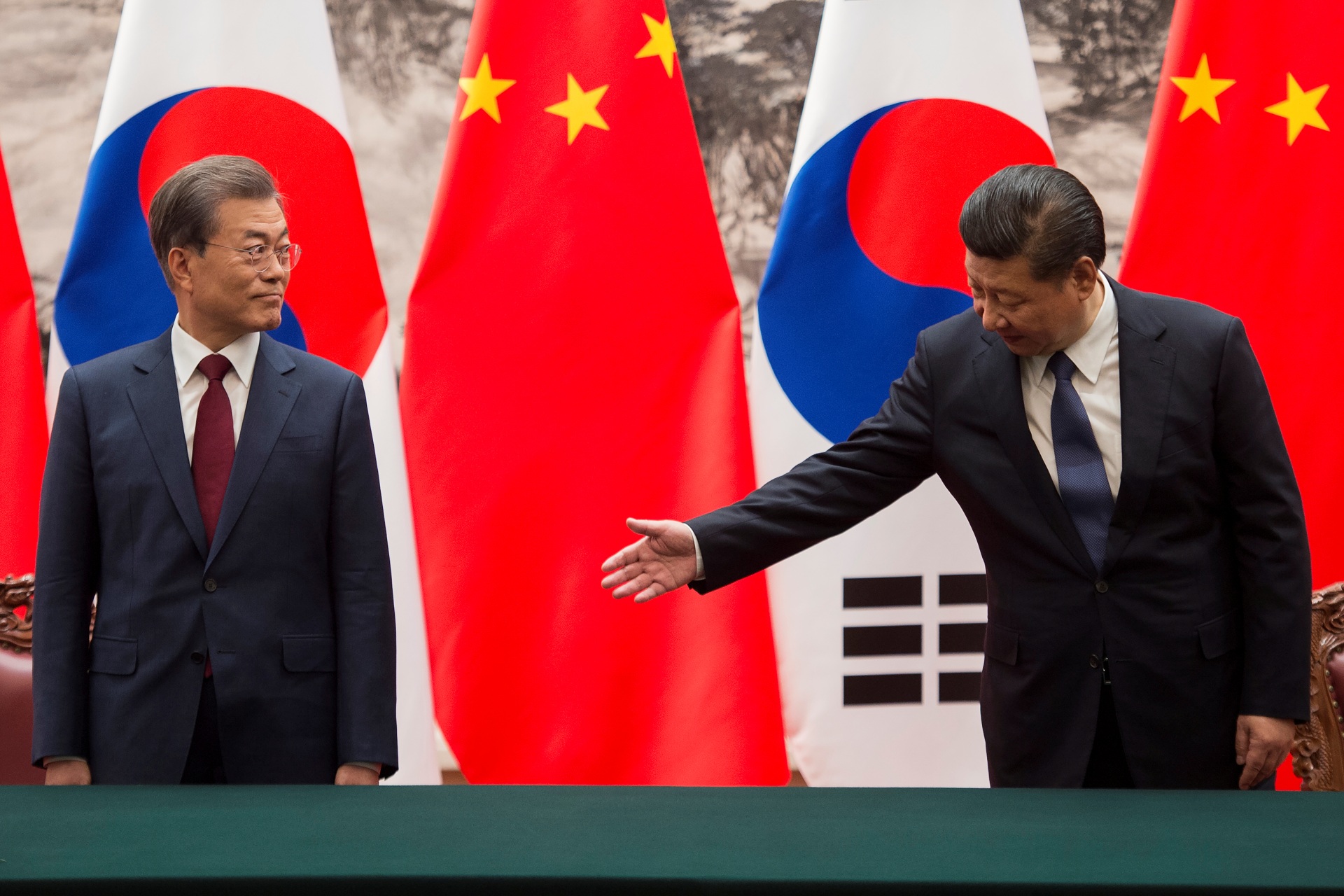South Koreans and Americans Agree on How to Deal With China
South Koreans and Americans strongly support the U.S.-South Korea security alliance as a hedge against China’s rise.

By experts and staff
- Published
By
- Scott A. SnyderSenior Fellow for Korea Studies and Director of the Program on U.S.-Korea Policy
South Korean and American public opinion toward China and toward each other provides an important window through which to measure the impact of rising economic competition and political rivalry between China and the United States. Parallel public opinion polls by the Chicago Council on Global Affairs and the Asan Institute for Policy Studies conducted in the summer of 2019 show that both publics strongly support the U.S.-South Korea security alliance as a hedge against China’s rise, while simultaneously supporting policies focused on cooperation rather than confrontation with China.
China has come to perceive South Korea as a possible weak link in the American alliance architecture in Northeast Asia. China retaliated against South Korea for the 2017 U.S. deployment of the Terminal High Altitude Air Defense (THAAD) system in the South in response to growing North Korean missile capabilities. Chinese maritime and air patrols are testing South Korea’s exclusive economic zone and the Korean Air Defense Identification Zone with increasing regularity.
China’s more muscular approach toward regional security has induced a backlash among the South Korean public, which prior to 2016 held a relatively rosy view of China’s future influence and impact on the region. In the most recent Asan survey, over 78 percent of South Koreans said their government should prioritize strengthening ties with the United States over China. South Koreans continue to favor the United States over all of their immediate neighbors. Favorability toward the United States remains positive, with a mean score of 60 on a 0-10 point scale, while China’s favorability was 3.8, the same as North Korea but higher than Japan, at 3.1. This finding coincides with support among two-thirds of Americans for building up strong relations with Japan and South Korea over relations with China.
Although South Korean perceptions of the United States are more favorable than perceptions of China, South Koreans are evenly divided on whether the United States should pursue cooperation (44 percent) or actively work to limit the growth of China’s power (46 percent). The South Korean public is more reserved than the American public in its own support for friendly cooperation and engagement with China, with 52 percent of South Koreans in support, compared to 68 percent of Americans who support U.S. cooperation and engagement with China.
South Korean public perceptions of China and the United States are significant because South Korea has so much to lose from Sino-U.S. economic and security confrontation. China and the United States are South Korea’s number one and two trading partners, together accounting for almost 40 percent of South Korean exports. A portion of South Korea’s manufacturing supply chain of exports to the United States runs through China, making South Korea one of the biggest potential victims of a Sino-U.S. trade war. It is not clear that the South Korean public attributes blame to either China or the United States for rising tensions, but an overwhelming majority (75 percent) expect Sino-U.S. trade tensions to have either a moderate or extremely negative impact on South Korean national security. Americans, meanwhile, are evenly split on the desirability of placing tariffs on Chinese goods.
The South Korean and American publics are a source of restraint on the direction of their respective government policies toward China. The American public strongly supports cooperative relations with China despite a sharp turn toward economic and security confrontation under the Trump administration, while cautious South Korean public attitudes toward China are a potential source of restraint against warming ties between Beijing and Seoul under the Moon administration.
But the underlying significance of the convergence of public views is that there is strong support in both the United States and South Korea for the U.S.-ROK alliance to act as a hedge against expanded Chinese political and economic influence in the region. Public support for cooperation between allies as a hedge against the downsides of China’s rise does not stem from an ambition to pursue confrontation with China, but rather from the desire to engage cooperatively with China from a position of strength.